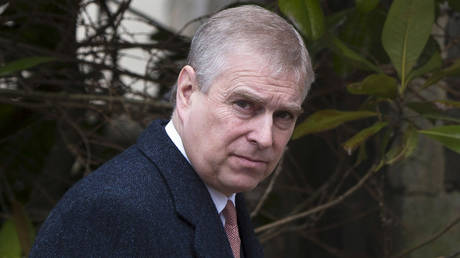
Prince Andrew’s tarnished reputation is irreparable, but the Royal Family as an institution will most likely live on
Those who point out that the mega-rich can always buy themselves out of legal trouble by waving a cheque book have another case to add to their list – namely that of Virginia Giuffre vs Prince Andrew. In dramatic news that finally got Ukraine off the front pages, the Queen’s son has agreed a reported £12-million ($16.3-million) out-of-court settlement with the 38-year-old American who had accused him of historical sexual abuse.
The Queen will reportedly help pay for the deal. However, any hopes Buckingham Palace may have had that a line will now be drawn under the case in the Platinum Jubilee year would soon have been dashed, after a glance at the newspaper splashes in the UK. They really don’t make good reading if you’re the Duke of York, or, indeed, the Queen.
“Royal wrong ‘un pays out to sex victim he’s never met. As you do,” declared the Daily Star. “His final disgrace,” pronounced The Sun. “Duke’s final ‘£10m’ humiliation,” was the verdict of the Daily Mail. “Andrew cuts sex case deal… but there’s no way back,” was the view of the Daily Express.
Let’s be honest: there was no way given the nature of the allegations against him, and Andrew’s proven association with Jeffrey Epstein, a convicted paedophile, and his equally ghastly procurer Ghislaine Maxwell, recently convicted of child sex trafficking, that the Crown, or Andrew himself was ever going to allow this case come to court.
Even if he had won the case – and it’s important to stress the Prince has always maintained his innocence – simply too much dirty linen would have been washed in public. A court case involving the son of the Queen and his association with those later convicted of serious sex offences and sex trafficking would have caused the Monarchy acute embarrassment. So it is really no great surprise that we’re not going to get one.
But while settling was Andrew’s least worst option, it doesn’t mean it was a good one. The overwhelming consensus is that the harm done to the Prince’s already tarnished reputation will be irreparable.
Of course, paying off an accuser doesn’t automatically mean you’re guilty. You might have perfectly legitimate reasons for wanting to settle, even if you have done nothing wrong. You may be in poor health or have other problems to contend with in your life and prefer to settle a case rather than fight it out. You may just want to spend your time on other, more pleasurable things than protracted legal battles. Note too that the statement announcing the settling of Guiffre’s case contains no apology or admission of guilt from Andrew, just “regret” over his association with Epstein.
However, for most people, the perception, rightly or wrongly, will be that the man once nicknamed ‘Randy Andy’ on account of his keen interest in the opposite sex, did have something to hide.
“If he has professed his innocence all along, why has he now settled?” wondered Dickie Arbiter, a former Palace press secretary to the Queen. It is likely to be a view shared by most people picking up a newspaper this week.
The simple truth is that Andrew’s association with the Despicable Duo – Epstein and Maxwell – will haunt him for the rest of his life. He is most unlikely to ever get back the titles he has already been stripped of, and may lose even more. He will always be seen as the ‘black sheep’ of the Royal family. He will be ‘persona non grata’ at special celebratory occasions. Airbrushed out of polite society.
Even the Duke of York Stakes at York horse races in May will be renamed to ‘The 1895 Duke of York Stakes’ to make it clear the race is not named after Prince Andrew.
Yet, because of the settlement, for all that it entails for Andrew, the Royal Family itself, as an institution, is more likely to endure. Not guaranteed to endure, but more likely, at least in a slimmed-down version. The Prince is dead, so to speak, but the Crown lives on. That surely is the main significance of this week’s news.




